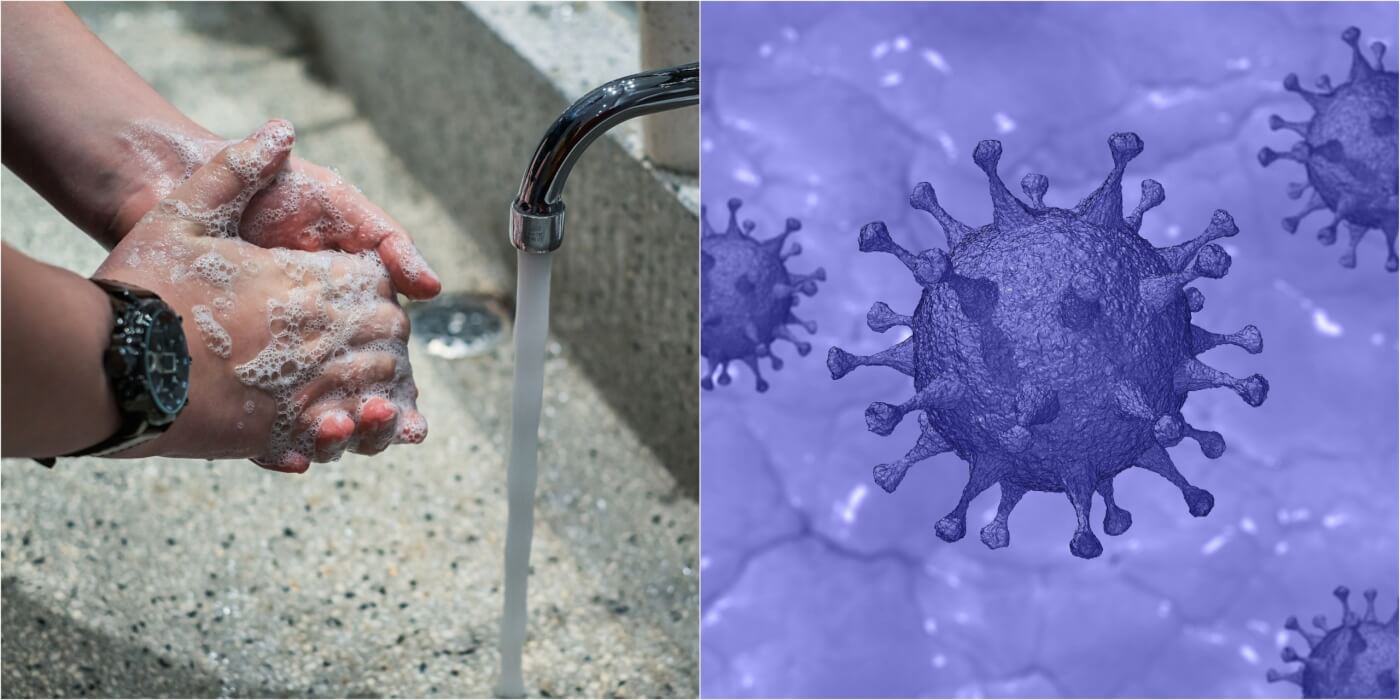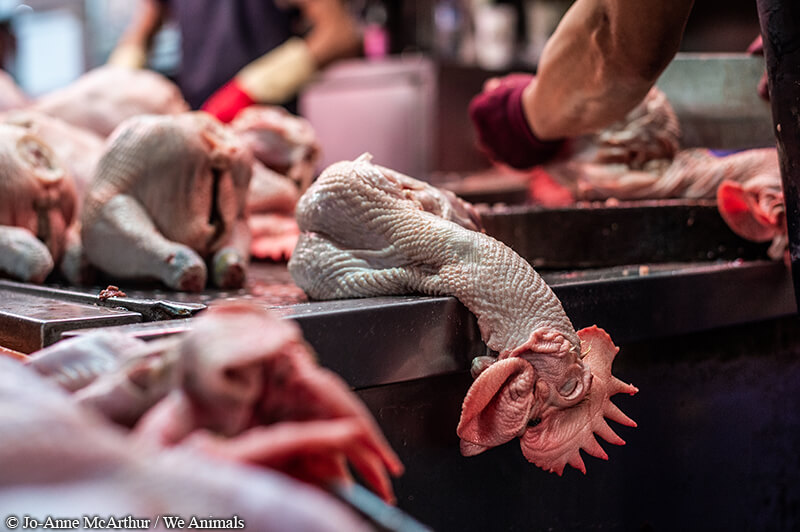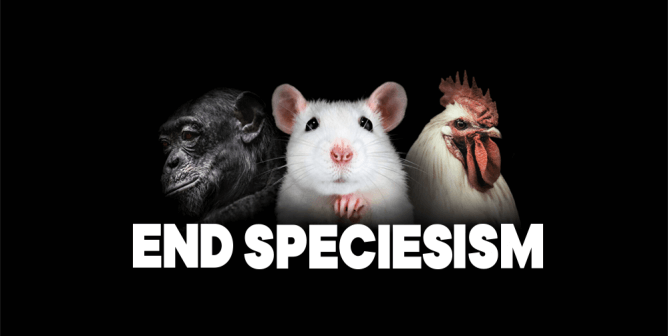PETA Covers Myths and Facts About Meat and the Coronavirus
What’s the link between meat and the coronavirus? As the outbreak of the novel coronavirus (COVID-19) grips the world, more and more people are isolating, quarantining, and wondering just how we got here. PETA has long warned about the health risks associated with eating meat. After all, raising animals for food in filthy conditions is a breeding ground for diseases that can be transmitted to humans.

PETA has answers to common questions about the link between eating meat and the coronavirus:
Can I get COVID-19 from eating meat?
The World Health Organization says, “To protect yourself, such as when visiting live animal markets, avoid direct contact with animals and surfaces in contact with animals. Ensure good food safety practices at all times. Handle raw meat, milk or animal organs with care to avoid contamination of uncooked foods and avoid consuming raw or undercooked animal products.”
For animals, the environment, and your own health, going vegan is your safest bet. Yes, even after the COVID-19 pandemic subsides.
Is it safe to eat meat during the coronavirus outbreak?
You should stay away from animal-derived foods at all times for many reasons!
They include the following:
- Cruelty to animals
- The meat, egg, and dairy industries’ damage to the planet
- The risk of suffering from heart disease, diabetes, cancer, and other ailments
- The significant risk of contracting foodborne pathogens such as coli and salmonella
- The rampant use of antibiotics in animals reared for food around the world, which contributes to the emergence of superbugs and antibiotic resistance in humans
Is the meat industry responsible for the coronavirus?
We can’t ignore the link between meat and outbreaks of diseases like COVID-19. Humans’ insatiable demand for meat, eggs, and dairy means that huge numbers of animals are reared in intensive confinement in giant, filthy warehouses.
Chickens, cows, pigs, and other animals are crammed together in small cages or feces-ridden sheds. They’re transported in filthy trucks and slaughtered on killing floors soaked with blood, urine, and other bodily fluids.
Pathogens flourish in such conditions. Crowded farms are a breeding ground for new strains of dangerous bacteria and viruses.
Where did the coronavirus come from?
Public health experts believe COVID-19 originated at a “wet market” in China, where vendors sell both live and dead animals for human consumption. COVID-19 is similar to the outbreaks of SARS and MERS: All three spread from animals to humans.
Have other diseases come from eating meat?
According to the U.S. Centers for Disease Control and Prevention, “Approximately 75 percent of recently emerging infectious diseases affecting people began as diseases in animals.”
Swine flu—which is linked to pigs—has killed thousands of people worldwide. And bird flu (or avian flu) is a disease that can spread easily on a crowded chicken farm. There are at least 144 different strains of bird flu. The H5N1 variety kills the most birds and is deadly to humans, killing about 60% of those who catch it.

What is the meat industry’s role in the emergence of superbugs?
In addition to serving as breeding grounds for viruses, the crowded, filthy conditions on farms allow bacteria to spread quickly. Farmers feed animals on today’s farms a regimen of antibiotics to try to minimize sickness or to promote unnatural growth. Did you know that animals on farms consume more antibiotics every year than humans do?
Bacteria become resistant to antibiotics as a result of overuse. This contributes to the emergence of “superbugs”—new, aggressive pathogens. Now, the drugs used to keep animals on farms alive are making humans sick.
Need Help Going Vegan? We’ve Got You Covered
If you want to make the conscientious, sustainable, and healthy choice to go vegan, PETA is here to help! We can even set you up with a free one-on-one mentor who can answer all your questions (via e-mail, of course, so you won’t have to stop social distancing). Try some vegan meats too—from PETA Business Friends Lily’s Vegan Pantry and Fake Meats. What are you waiting for?


